Brooke Weisbrod knows a thing or two about career transitions and adapting to the unexpected. Before she was old enough to drink (in the States anyway), she was playing basketball professionally for Germany’s Marburg Marlins. Living abroad and living the life, Brooke found herself beloved by fans and teammates alike. At 21, by almost all standards, she had it all—until one day she didn't. An unexpected injury forced her to retire early, and suddenly, Brooke was back in the States and faced with the question we all know too well: What do I want to do now?
Unable to face working in the sports industry after leaving the career she loved, she turned first to advertising. But ultimately, she wasn't cut out for cubicle life and the game called her back again.
After a random afternoon calling shots at a college game, Brooke realized she'd found her new direction—she was a natural at commentating. Over the years, she's climbed ranks in the sports broadcasting realm, and now she's one of the few women personalities at ESPN and the Big Ten Network. Today, sharing some of her best advice about rolling with the unexpected and remaining true to your sports-loving self.
Her Starting Point
You grew up in Hamilton, Ohio, where you played several sports in high school and, ultimately, you went on to played three sports in college. (Woah.) When did you discover your love for the game(s)?
I don’t know that I had a choice, I was the youngest in my family so I did what my sisters and our friends in the neighborhood did — play outside. If it wasn’t basketball, it was backyard football, home run derby, ghosts in the graveyard, ding-dong ditch, whatever. I had a ton of energy so playing sports gave me the outlet I needed and gave my parents some much needed quiet time. As I got older, sports served as my therapy during some pretty painful times.
You went on to play professional basketball for Germany’s Marburg Marlins before an injury at 21 forced you to retire. What was it like living abroad when you were so young? How did those experiences lead you to your career in broadcasting?
YouTube didn’t exist then and no matter how much I read about Germany I wasn’t ready for everyday life in a new country, especially at 21. But my last name means “white bread” in German so I was in great hands! I was lucky that my coach and teammates spoke English (not common I learned later), and the Marburg Marlins carried a reputation for playing as hard at the bar as they did on the court. The first day after practice my coach handed us a case of beer in the locker room like that was just normal. The night before our first tournament we went out for frozen margaritas. Alrighty then.
Road trips took on a new meaning because, in Marburg, the fans travel with you. Yes, of course, they travel with alcohol, enough to share with the team on the way home. Their passion for the game and love for us ran deep. They even recorded a CD with pop songs re-written about each one of us. We were treated like rock stars.
The hardest part was managing the emotions of being on my own so far away from familiarity. The 9/11 attacks happened two weeks after I got there, and the sorrow and fear spread instantly across the world. My roommates Katja and Dani did their best to translate what was happening while we watched from a grainy black and white television in our apartment. I couldn’t call home, and I couldn’t get online until the next day. We took solace in each other, but it was the first time in my life that I felt extremely vulnerable.
Given your injury and early retirement, would you do it all over again? How did giving up the game lead you to where you are now?
I injured myself water skiing right before I left for Germany and didn’t tell anyone because I was so set on fulfilling my dream. Honestly, even if that hadn't happened, my mentality would have been to play until my body gave out. Three herniated discs and two surgeries later, I’ve learned to take better care of myself.
“Retiring” forced me to figure out who I wanted to be as an adult and how to separate myself from my past. I wasn’t an athlete anymore so I didn’t want to identify as one. I loved advertising so I moved to Chicago and started working as an assistant media buyer for an advertising agency (GSD&M) on Michigan Avenue. But adjusting to corporate life was just as much of a culture shock as it was living in Europe! I loved the people I worked with, but I hated the work. The routine. The politics. The paperwork. Cubicles. Sitting Still. I learned what I didn’t want my life to be about.
In college, you graduated Cum Laude with a degree in marketing, but ultimately you’ve gone on to work in sports broadcasting and media. What drew you to broadcasting?
I didn’t think about broadcasting until after my injury. I made a visit to Coastal Carolina during homecoming, and Matt Hogue, the current Athletic Director, sparked the idea when he called me down from the stands while he called the game on the radio. We did a quick interview and then it just happened, we started calling the game as if we were already an on-air team. I had been searching for the same feeling that playing gave me, and it hit me right then and there. I was hooked.
My favorite part about being on the air is tapping into that feeling and trusting my intuition to tell the story of the game going on in front of me. I love the freedom to give my opinion and use my background to make connections or spot a trend. There’s such an art to the game, a finesse, and I understand the sacrifice it takes and the pressure it puts on these athletes to perform at the level they do. My job is to paint that picture for viewers. Maybe that’s where the name color commentator comes from!
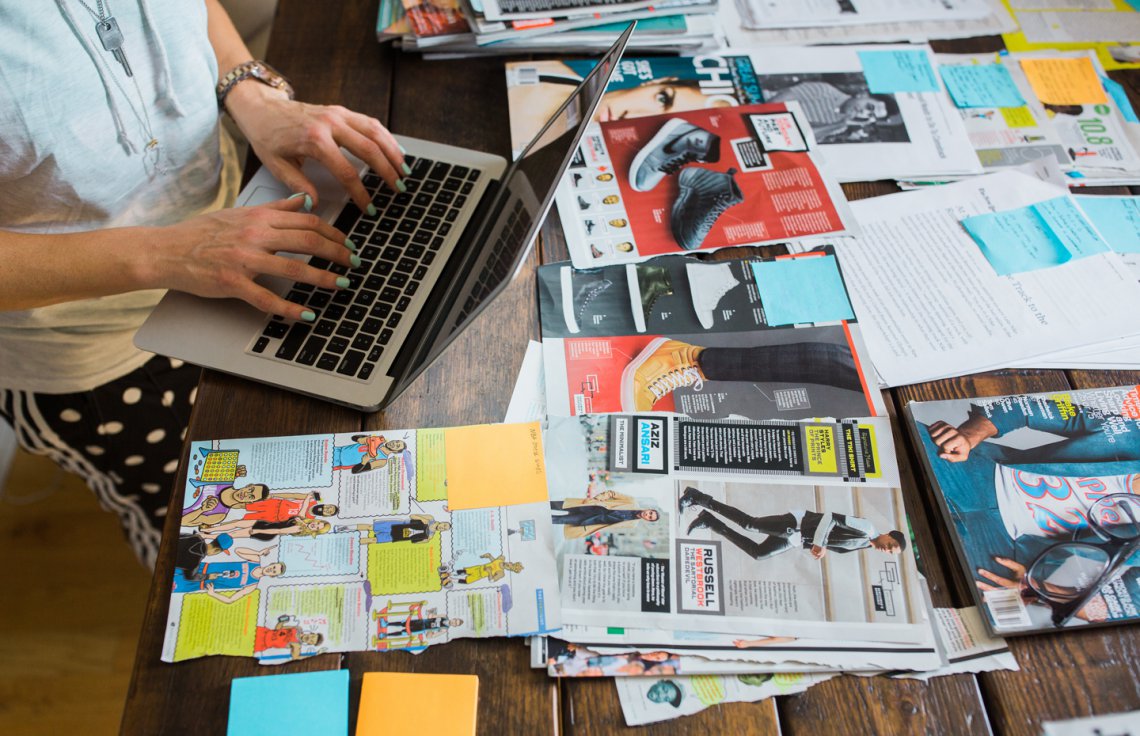
Her Big Break
You ultimately landed at ESPN, where you’re now a sports broadcaster. But while you were building your career, you worked a side career in sales to make ends meet. Talk to us a little about that period, when you were juggling a day job and a dream job.
It’s not like I had a name or a national championship when I started, so while I was all kinds of ready to go full-time, I still needed to build my reputation and stick it out in the corporate world for a while. Like every other 25-year-old at that time, I wanted a job in pharmaceutical sales until a recruiter called and asked me if I knew anything about scrap metal recycling (I didn’t) and if I’d be interested in a sales role for a woman-owned company. That was the beginning of an 8-year surprisingly fascinating career in the metals industries. (Google the story of United Scrap Metal when you have a moment!)
Juggling the two worlds worked for me when I could combine them. Cold-calls aren’t so frigid when you can talk about the Bulls game as much as the American Metals Market. My customers would text me during games I was calling just to say hey and let me know they were watching. Knowing how to talk about sports helped open doors, but after that, it was strictly business.
In 2012, I was given a blessing in disguise. The recession led to layoffs and after that I decided to take a chance on myself. I’m glad I did.
What’s the hardest part about being in front of a camera? What about the best?
The hardest part is making it look easy, and the best part is knowing that it isn’t.
Is there anything about working in sports broadcasting that would surprise us?
I’m surprised people still think this, but I get asked way too often if I’m told what to say or what questions to ask. The answer is no.
And it might surprise you to know I don’t care who wins the game. Any game. A win is an injury-free night our when our call of the game-winning shot makes the #SCTop10.
After a long week, how do you spend your weekend?
What the hell is a weekend? I don’t have many days off during the season, but my off-season is dedicated to traveling, personal growth, visiting family, making sure my friends know I still exist, and getting outside as much as possible.
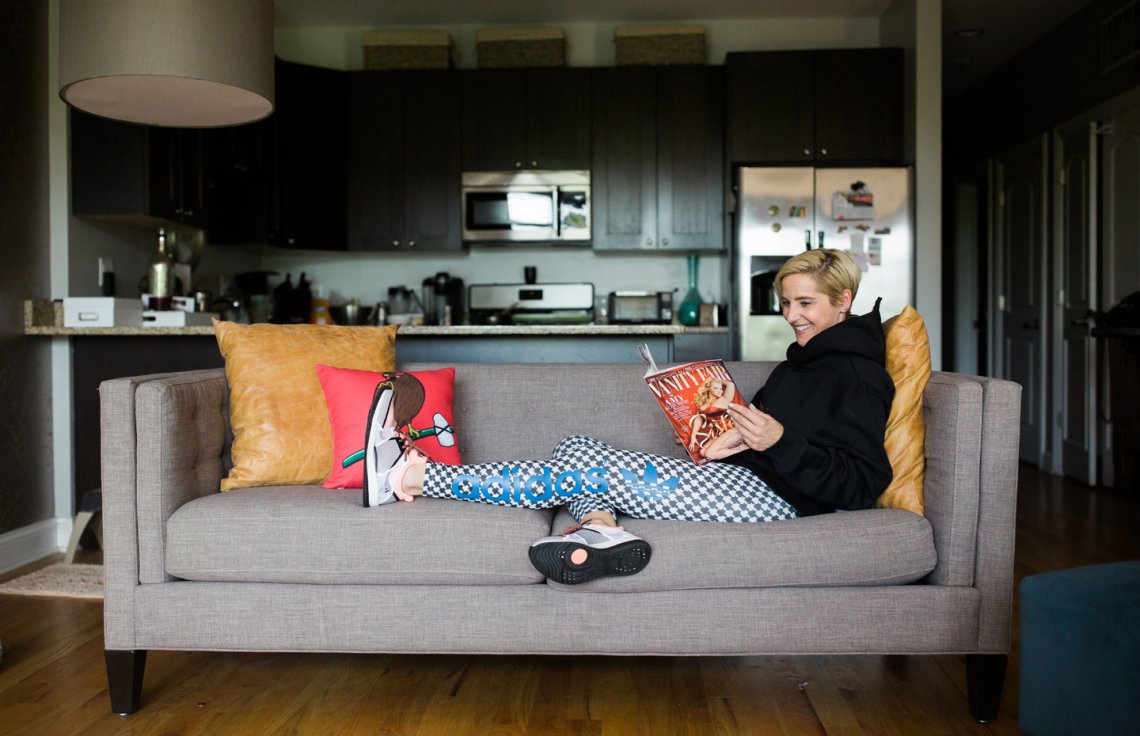
Her Perspective
No surprise here: your whole life you’ve been a woman in a male-dominated field, whether that was playing sports professionally or working as a sports broadcaster. Did you experience gender bias or stereotyping along the way?
Every woman deals with gender bias, sometimes on the daily, and it isn’t limited to the industry in which you work. That’s why it’s important to stand up against it and address it head-on (I wrote about a personal experience last year). More women and minorities need to have seats at the executive table. I’d change that in every industry.
What’s the best advice you can give to a woman starting out who’s interested in a career in journalism or even specifically in sports broadcasting?
The opportunities on and off camera are there for you if you are willing to put in the time and effort not just to work hard but also to find your value. If you want to be on camera, we need more women with opinions! You have one, and you should share it unabashedly with the same conviction as a guy. My boss gave me solid advice when he told me “Have a take. Don’t suck.”
What’s one thing you’d change about your career or decisions you’ve made so far if you could?
I wouldn’t change anything, but I do wish I would have trusted my instincts much sooner than I did. Now it’s how I make every decision.
And finally, what do you wake up looking forward to? What’s next for your career?
Coffee! It sounds cliché, but after that I’m about living in the moment. So much of my time is dictated that it feels amazing to just let go and see where the day takes me. For my career, I love calling games and hope to continue doing that for at least a few more years. A few NBA games would be great! I’m also very interested in content and projects that combine sports with fashion, art, music, and culture.
You May Also Like
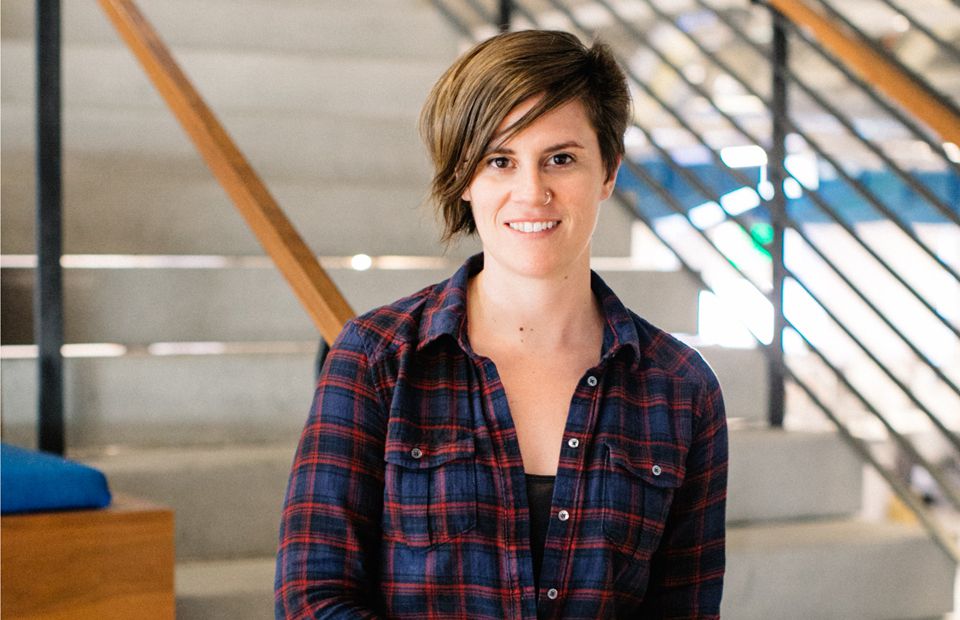
Media
How to Use Positive Reinforcement at Work—and Other Advice from a Pandora PM
"My advice to anyone who wants to get into product management is: check your ego at the door."
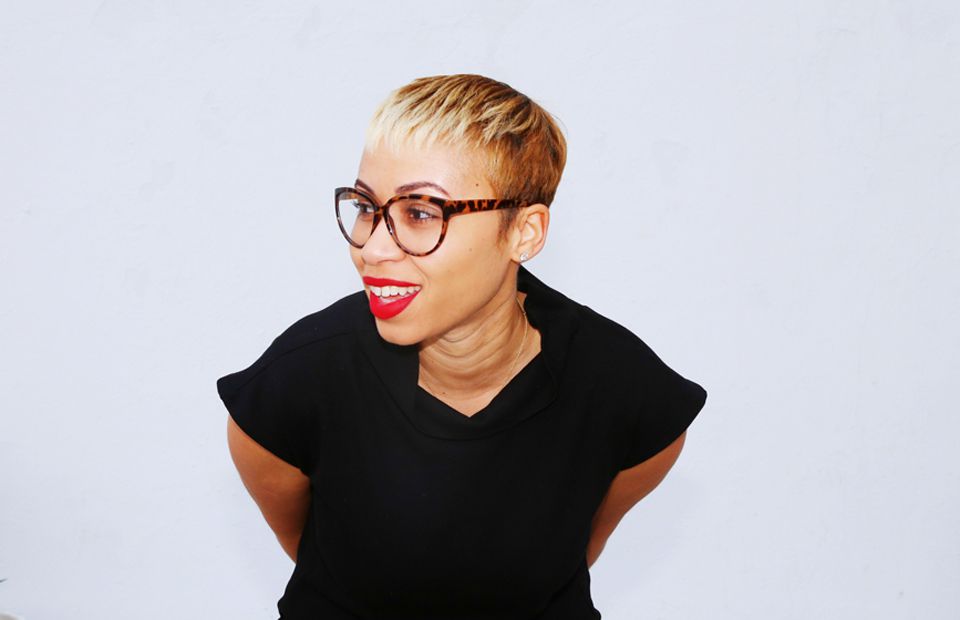
Media, Communications + Public Relations
How to Take Risks, Make a Switch, and Find a Career You Love—From a Woman Who's Done It 4 Times
Making your wildest dreams come true starts with understanding yourself—and Ahyiana Angel can help.
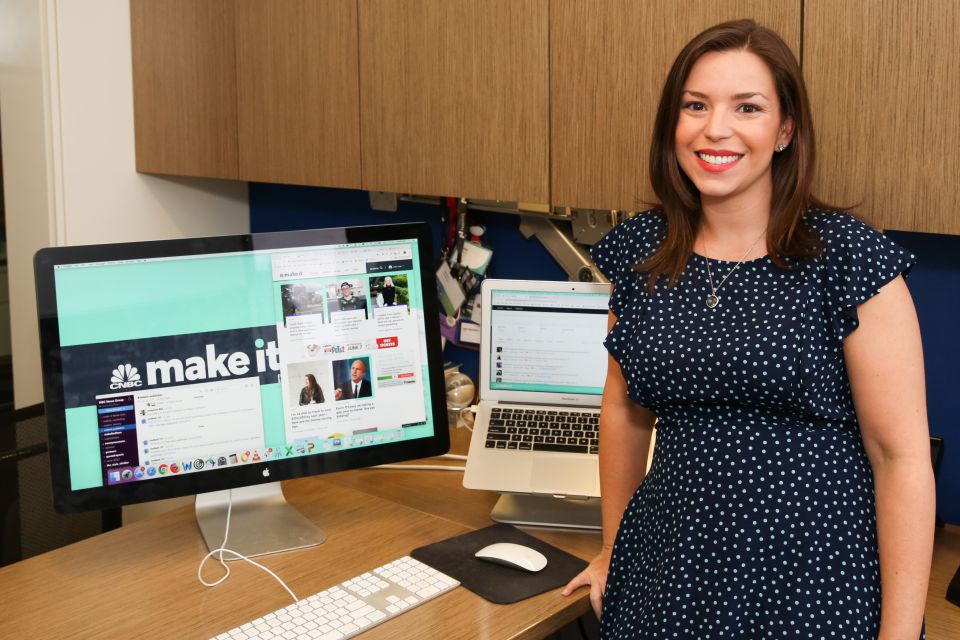
Communications + Public Relations
Creating Content That Empowers Audiences with CNBC's Digital VP and Managing Editor
This week, we interviewed Jenna Goudreau, the VP and managing editor of CNBC Digital. Let's learn how she keeps her powerhouse content creation machine going.
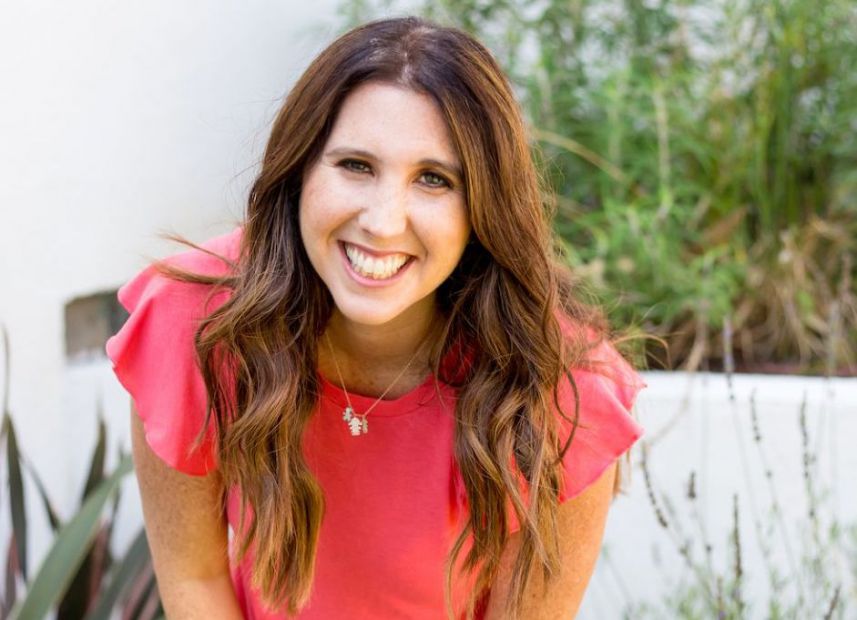
Entertainment
Working Creatively From Home with Cathy Heller
Cathy Heller is a singer, songwriter, entrepreneur, mother—and now, an author. Determined to lift others up to the "happiest versions of themselves," this queen of the hyphenated job title, leads by example. She shared how to build a fulfilling career in a creative field—all while working from home.
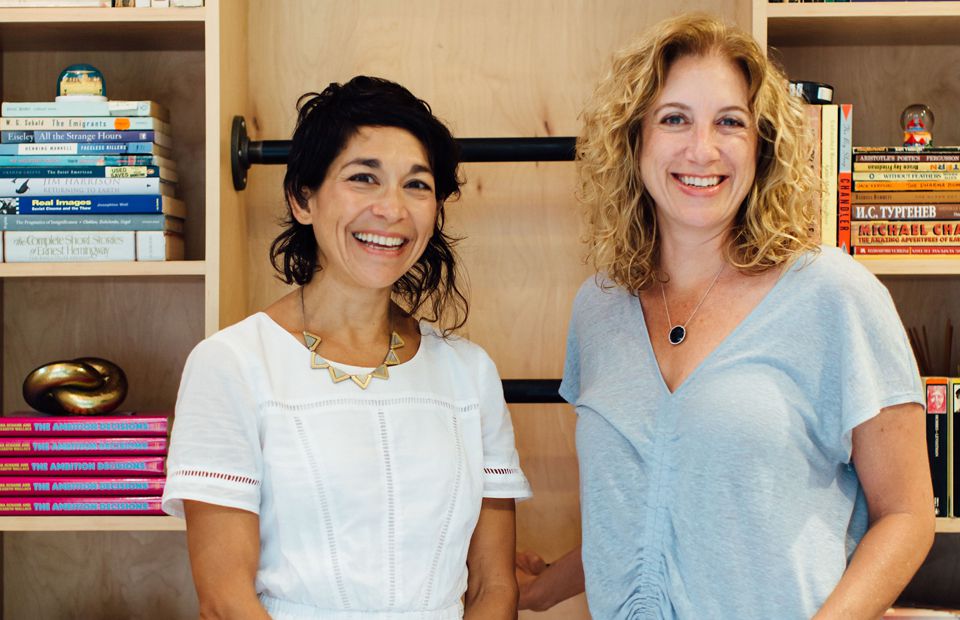
Media
Women, Work, and What It's Like to Write With Your Best Friend—From the Authors of The Ambition Decisions
"We should all give ourselves permission to challenge the things we think can’t be challenged."
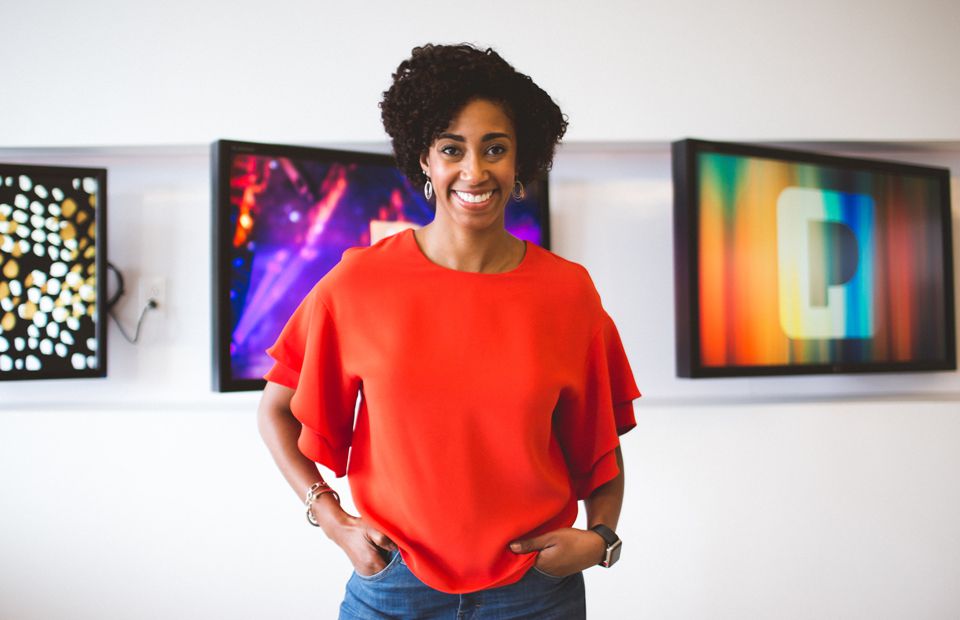
Media
A Director at Pandora on Staying Present, Celebrating Others, and Learning From Failure
"Share your wins, but most importantly, share what your growth areas are, share when you fail, share how you bounced back."
Get the Best Career Advice Delivered To Your Inbox
Join our newsletter to stay in the loop.
